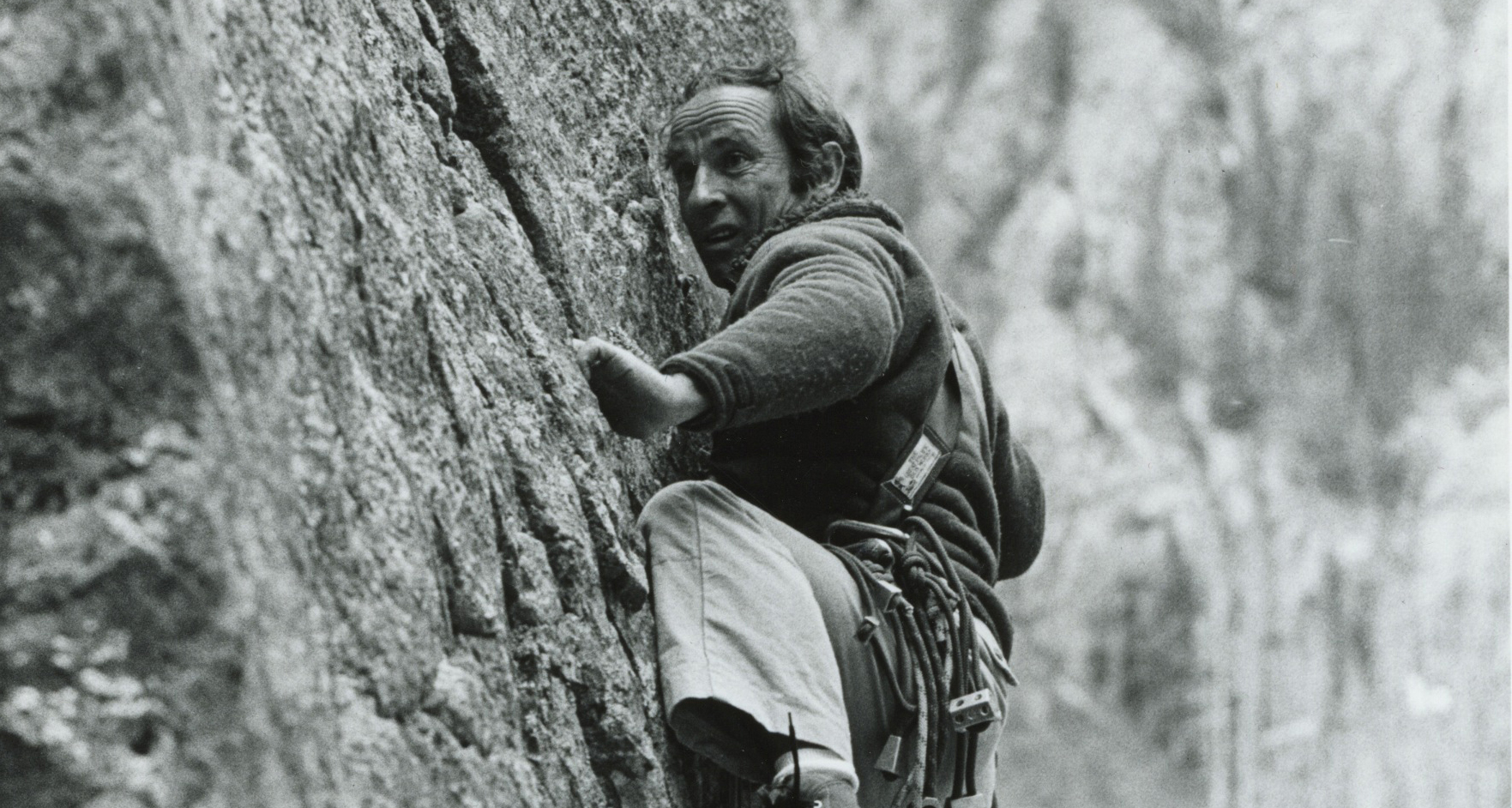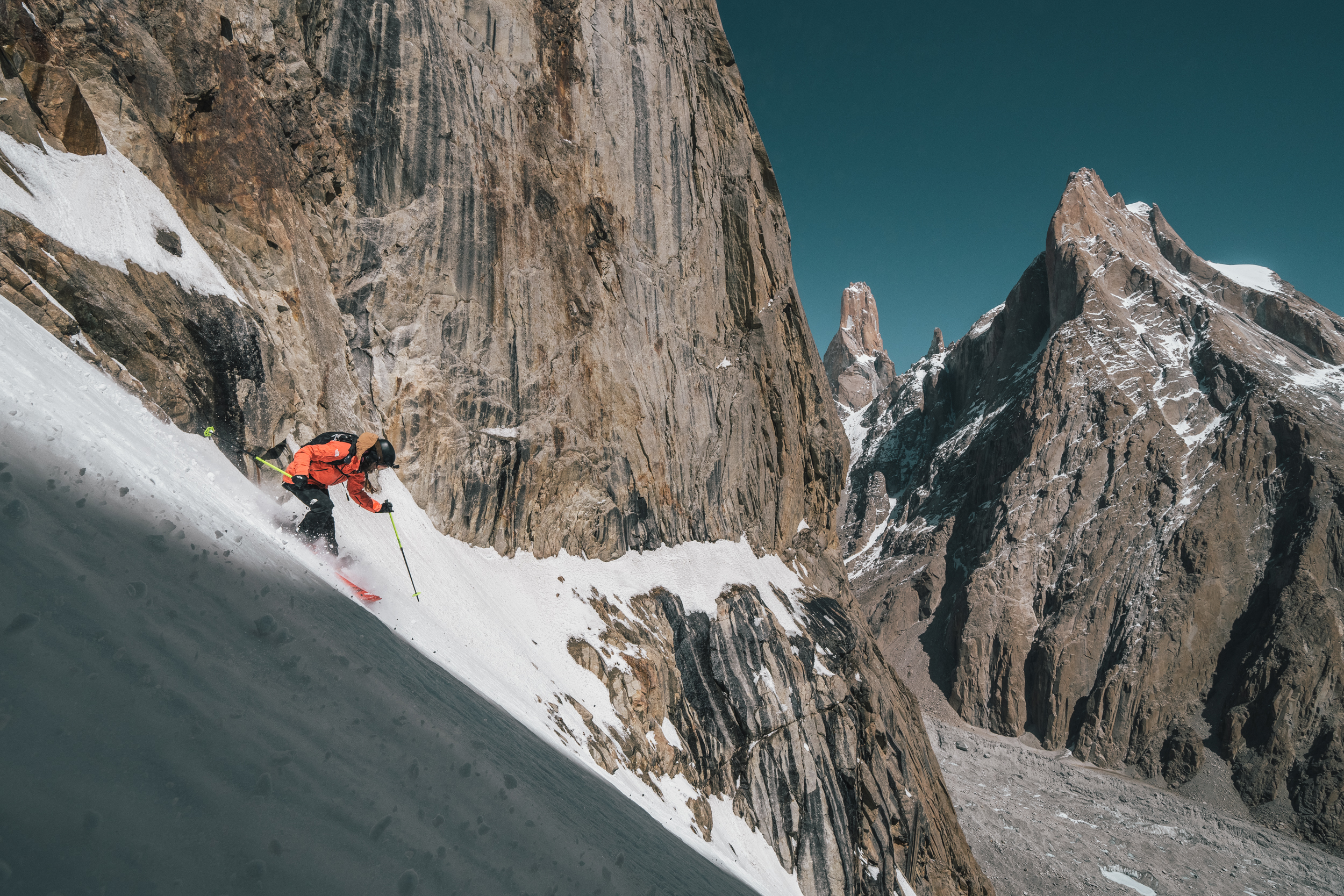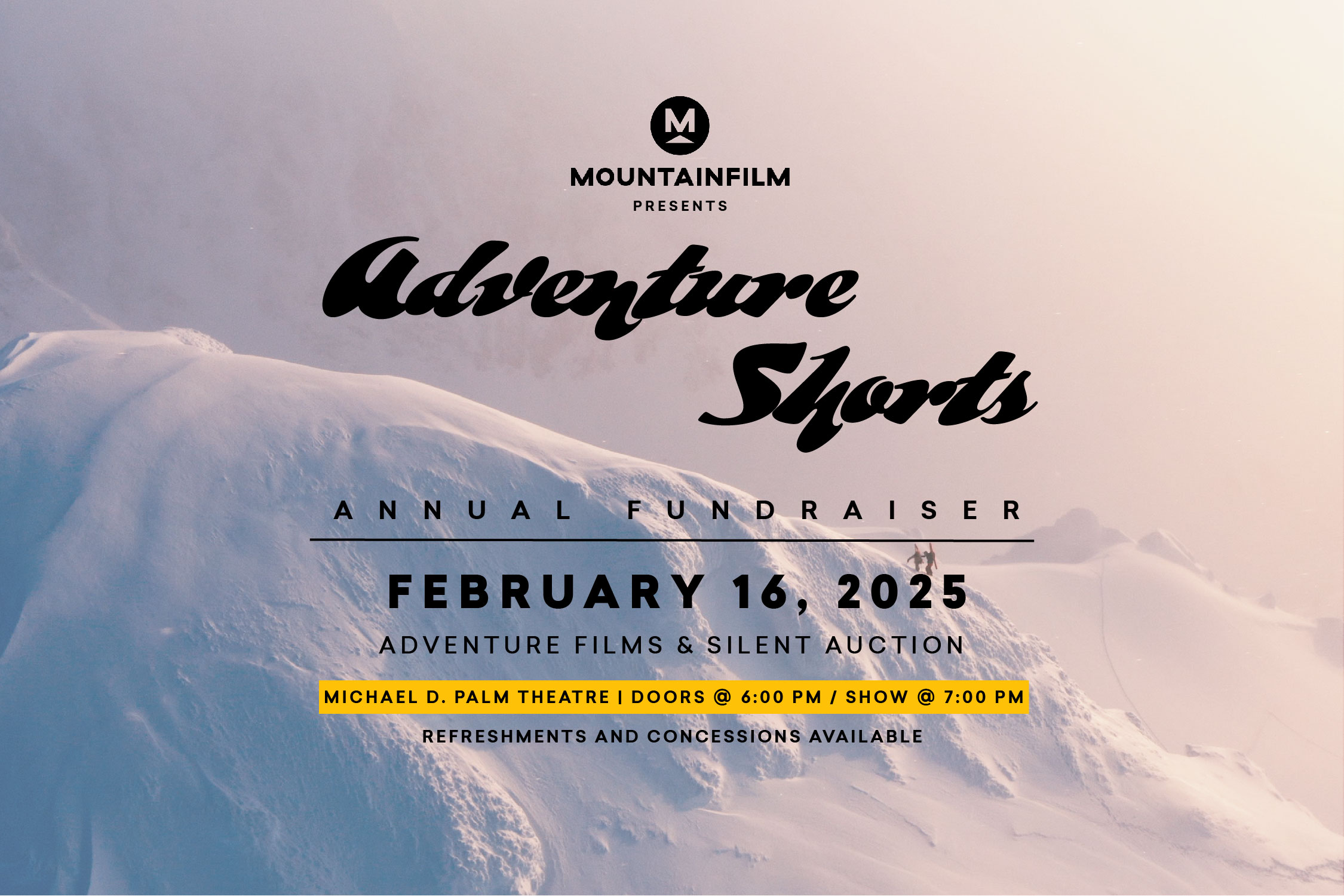
Mountain Films Reach New Heights at Telluride Festival
As we prepare to celebrate Mountainfilm’s thirty-fifth birthday this year, we’ve been nostalgically leafing through old scrapbooks. This article, written by Peter Shelton, was a special to the Sunday Denver Post on June 7, 1981, highlighting an early festival.
“Small town, big show,” was the way T.I.M. Lewis, climber and editor of Britain’s prestigious Mountain magazine, described the third Mountainfilm in Telluride. Lewis had come from England specifically to join Telluride’s annual gathering of mountaineers, adventurers, filmmakers and films about mountain life.
Gov. Dick Lamm was in attendance for the second time in three years and noted, “In all of the United States, there is no other event like this. I’m tickled to death that it’s happening in Colorado.” The governor, who has scaled 44 of the state’s 53 14,000-foot peaks, came to this preserved Victorian town of 1,000 residents 8,745 feet up in the San Juan Mountains to see films from Poland, England, France, Italy, Germany, Canada and the United States, and to climb the local rock walls with notables of the mountaineering world.
Among those climbing in nearby Crack Canyon was 1981 guest of honor Yvon Chouinard, a giant of the mountain-climbing world for the past two decades. Yosemite big-wall pioneer in the 1960s, ice climber, author and manufacturer of innovative and highly respected climbing gear. Chouinard accepted Mountainfilm’s laudits with characteristic humility. “The mountains have been good to me,” he told the SRO opening night audience.
Yvon Chouinard in Crack Canyon
Chouinard was featured in the festival’s opening film, Fitz Roy, The First Ascent of the Southwest Buttress, by sometime Telluride resident Lito Tejada-Flores, in which Yvon leads four Americans and one Briton to the summit of the stunning 11,000-foot rock pillar in Patagonia at the stormy tip of South America. Though it is 12 years old, the film is still fresh, a masterpiece of film chutzpa in remarkably adverse conditions (they spent 60 days in ice caves, waiting for a break in the weather) and a classic in the mountaineering genre.
Lito Tejada-Flores
Clockwise from left: Yvon Chouinard, Gov. Dick Lamb, Bill Kees and Mel Griffith
On the gathering’s second day, Chouinard gave the festival its emotional keynote, narrating a slide presentation on his 1980 trip to China and subsequent unsuccessful attempt on a Tibetan peak. Chouinardand three others were swept by an avalanche 1,500 feet down the mountain. Yvon escaped with two broken ribs, but one man broke his back, and a third climber, Aspen photographer and cinematographer Jonathan Wright, was killed. With Wright’s widow in attendance, Chouinard gave moving tribute to a friend, a man, he said, who won’t soon be forgotten – not by his friends not, interestingly, by the Tibetans. It seems Wright, a Buddhist, had greatly moved villagers on their trek, to the point where some of them began reviving religious customs long ago squashed by the Han Chinese majority. Mountainfilm 1981 was dedicated to Jonathan Wright (1952-1980) “…who exemplified what (the festival) hopes to encourage: love for adventure, appreciation of wild beauty, and exceptional expression of these through a camera.”
Mountainfilm 1981 opening party
Twenty-five films were screened over the Memorial Day weekend, spanning a filmic crevasse from Mickey Mouse in Alpine Climbers to Leni Riefenstahl’s 1932 classic of mountain mysticism, The Blue Light.
One of the festival’s real coups was establishing a Polish connection. From Warsaw came Marek Piestrak with four films never before seen in the United States, including two of his own. He was fulfilling a dream, he said, “to come to Colorado – the REAL West.” And to find here “such a kind a friendly place,” was beyond his hopes. A kindly man himself, small and wide-eyed, Piestrak passed out “Solidarity” buttons, symbol of his country’s independent union movement and a fitting link to the vitality of Telluride.
The Polish films stood out in bold contrast to most mountain films. Odwrot (Retreat) was the only film anyone here had ever seen of an heroic descent. Stark and poetic and chillingly beautiful, had Odwrot not been too old (it was made in 1969 and the festival considers for judging only films made in the past 10 years), it would surely have been in the running for the Grand Prize.
The Poles have discovered how to let films tell their stories without unnecessary dialogue, narrative or visual explanation. Piestrak’s films were a good example. Day of the Caravan (1980), a lush pictorial on an approach march through Nepal to the foot of Dhaulagiri, opens with the camera’s eye fixed on the muddy trail as hiking boots, then rubber thongs, then bare feet slog by. Caravan’s sequel, North Face of Dhaulagiri had almost no explanation, save the translated conversations of climbers in different camps talking by radio.
Cross-Country and Jumping (Poland, 1980) won Mountainfilm’s best foreign film award and was in may ways the most innovative sports film in recent memory. Taking Caravan’s techniques to extreme, the camera remains still while snippets of action whiz past; jumpers land one after the other or drop from nowhere into nowhere through the frame. We watch the triumphs and disappointments of the refreshment lady as she tries, often unsuccessfully, to hand cups to cross-country skiers flying by. The result is an abstract but remarkably complete (in only 12 minutes) mosaic of the sport in question.
In addition to The Blue Light, the oft-seen German classic (which is oft-seen, one should know, because of the universal appeal of the legend and the irresistible beauty of the young Miss Riefenstahl), Mountainfilm screened the 1932 German/Hollywood production of The Doomed Battalion, starring Luis Trenker. It is the story of two friends, one Austrian, one Italian, who find themselves on opposite sides of the Great War in 1914. One is trying to hold and the other attempting to take a mountain they have climbed together in peacetime. There are some powder-skiing sequences to rival anything Warren Miller has done.
Of the more contemporary films, these stood out:
–AntarticaSurvey (USA, 1980) whose absolutely startling beauty overcame a sometimes corny ABC television script to win the festival’s grand prize.
-–Bears and Man (Canada, 1978). From Chief Dan George’s narration; “The spirit of the great bear fills the land. He is wilder and stronger than we are…I pray in my heart for his future.”
–Fall Line (USA, 1981) provided the biggest adrenalin rush of the festival (and won the Outside magazine award for best mountain-sports film) as we watched a lone skier fall 1,000 feet down a rock-filled gorge in the Tetons.
–Search for Excitement (England, 1978). Eight British kayakers set out to run the Braldu River in Karakorum of Pakistan and lose their leader in the icy maelstrom the first day.
–Survival Run (USA, 1979) the Jury Award winner about a blind runner and his guide/companion on a grueling cross-country run to the sea in Northern California.




